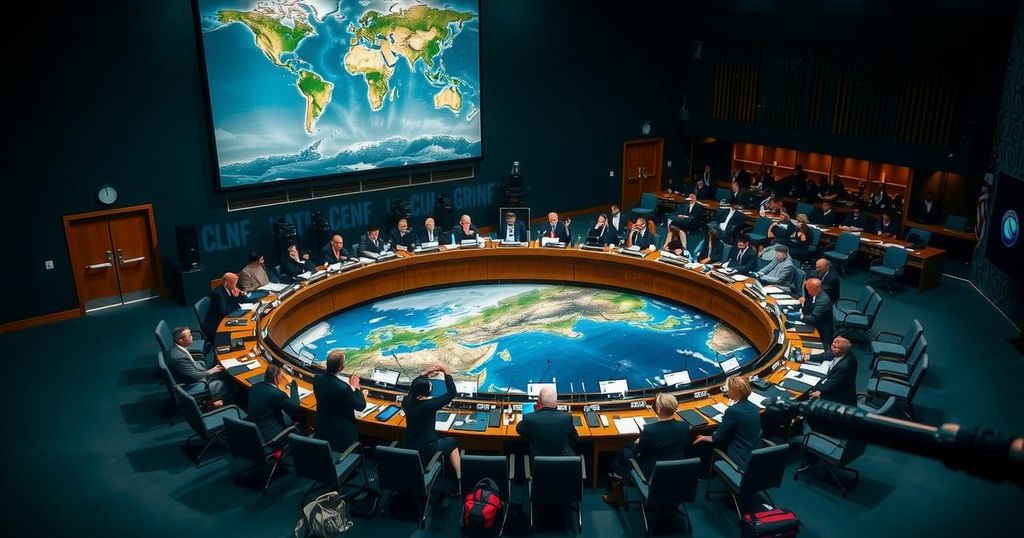Urgent Negotiations at COP29 for Climate Finance to Support Vulnerable Nations

Negotiators at COP29 in Baku are striving to secure an agreement to provide vulnerable nations with necessary funding, estimated at $1.3 trillion, for climate adaptation and mitigation. Current offers from developed nations fall short of these demands, leading to urgent discussions on funding structures and commitments. The conference’s outcomes will significantly impact the future of climate finance and the well-being of developing countries.
At the ongoing COP29 U.N. Climate Summit in Baku, Azerbaijan, negotiators are racing against the clock to secure a financial agreement that addresses the pressing needs of vulnerable nations impacted by climate change. The urgency is palpable, with COP29 President Mukhtar Babayev urging representatives to advance beyond technical discussions and focus on reach substantial commitments. Vulnerable nations are seeking approximately $1.3 trillion to combat climate change effects and invest in clean-energy infrastructure; however, current offers from developed countries are significantly lower. As talks continue, a consensus on the scale of funding, whether it consists of grants or loans, and determining contributors remains a priority. Amid an atmosphere of increasing pressure, several critical discussions are underway to resolve how extensively financial aid will be distributed to the Global South. The outlook for the conference remains uncertain, as the developed world has yet to meet the commitments outlined in previous agreements, such as the $100 billion annual goal established in 2009. Meanwhile, calls for immediate action from global leaders highlight the need for tangible financial support for developing nations.
The COP29 U.N. Climate Summit serves as a platform for global discussions regarding climate change mitigation and adaptation, particularly emphasizing the financial responsibilities of wealthier nations towards vulnerable countries. The historical context of climate negotiations reveals a consistent struggle to translate commitments into action, particularly concerning funding. As developing nations continue to bear significant impacts of climate change, the urgency for equitable financial support has never been more critical, necessitating concrete, ambitious agreements in Baku to ensure the survival and development of the Global South.
The outcome of the COP29 U.N. Climate Summit hinges significantly on the ability of negotiators to reconcile financial expectations between developed and developing nations. With a clear demand for $1.3 trillion to address climate change impacts, the disparity between offers and needs underscores a fragmented approach to climate finance. Failure to reach an agreement could have profound implications for vulnerable communities who are already facing the severe consequences of climate change. Thus, a collaborative effort is essential to foster a sustainable future for all nations.
Original Source: apnews.com






